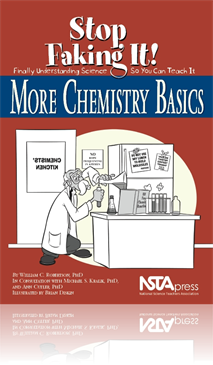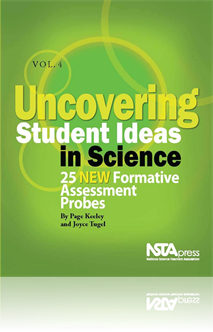All Physical Science resources
Book Chapter
This is the second chemistry book in the Stop Faking It! series—the first one is Chemistry Basics. This book introduces new concepts and expands on many of the concepts presented in the first book, hence the author felt it would be helpful to begi...
Book Chapter
This chapter is about states of matter and a section of chemistry called thermodynamics which is the inspiration (or lack thereof) for the chapter title. The chapter might seem just a bit disconnected from the content in the rest of the book, but it�...
Book Chapter
To begin this chapter, you need to picture electrons in atoms as residing in orbitals—those fuzzy things that can be spherical, dumbbell-shaped, or even ring-shaped. The author addresses orbitals and why they’re fuzzy and then deals with how the ...
Book Chapter
The basics of chemical reactions were covered in the first chemistry book, including how to write and balance chemical equations that represent those reactions. There is also a quick review of chemical reactions in Chapter 1 of this book. We’re goi...
Book Chapter
Half a Life is Better Than None
Most of chemistry deals with chemical reactions and, hence, with how electrons in atoms behave either in single atoms or when those atoms get together with other atoms. There is a branch, though, that deals with the nuclei of atoms—and that’s wha...
Book Chapter
It would be impossible to investigate even a fraction of organic chemistry in this book, so in this chapter the author goes over a few things that will complement the limited organic chemistry in the first book. This is not a comprehensive chapter on...
NSTA Press Book
Uncovering Student Ideas in Science, Volume 4: 25 New Formative Assessment Probes
Wouldn't it be helpful to know what your students' ideas are about a science concept before launching into a new lesson or unit? Uncovering Student Ideas in Science, Volume 4, offers 25 more formative assessment probes to help reveal students' precon...
By Joyce Tugel, Page Keeley
Book Chapter
The purpose of this assessment probe is to elicit students' ideas about magnetism. The probe is specifically designed to determine whether students believe air is necessary for magnets to work....
Book Chapter
The purpose of this assessment probe is to elicit students' ideas about temperature in the context of phases of matter. The probe is designed to find out if students recognize that the temperature of a substance does not change when two phases are pr...
NSTA Press Book
Uncovering Student Ideas in Science, Volume 3: Another 25 Formative Assessment Probes
Because you demanded it! Since publication of Volume 1 of this series, thousands of teachers are using these innovative classroom tools to improve student learning in science. Following in the footsteps of earlier volumes in the Uncovering Student Id...
By Page Keeley, Francis Eberle, Chad Dorsey
Book Chapter
As stated in “About This Book,” the author isn’t going to take the usual approach to the subject of chemistry. Because virtually all explanations of chemical reactions are based on our current model of atoms and molecules, the first thing to do...
Book Chapter
At the end of the first chapter, you realized, hopefully, that the model of an atom that we have so far (Rutherford’s model of a concentrated positive nucleus with negative charges around it) doesn’t go very far in helping us explain observations...
Book Chapter
In thinking about a title for this chapter, the word periodicity came to mind. I was sure this had some kind of pop culture reference. After discussing this with my wife, we figured I was thinking of synchronicity, which is a reference to music b...




